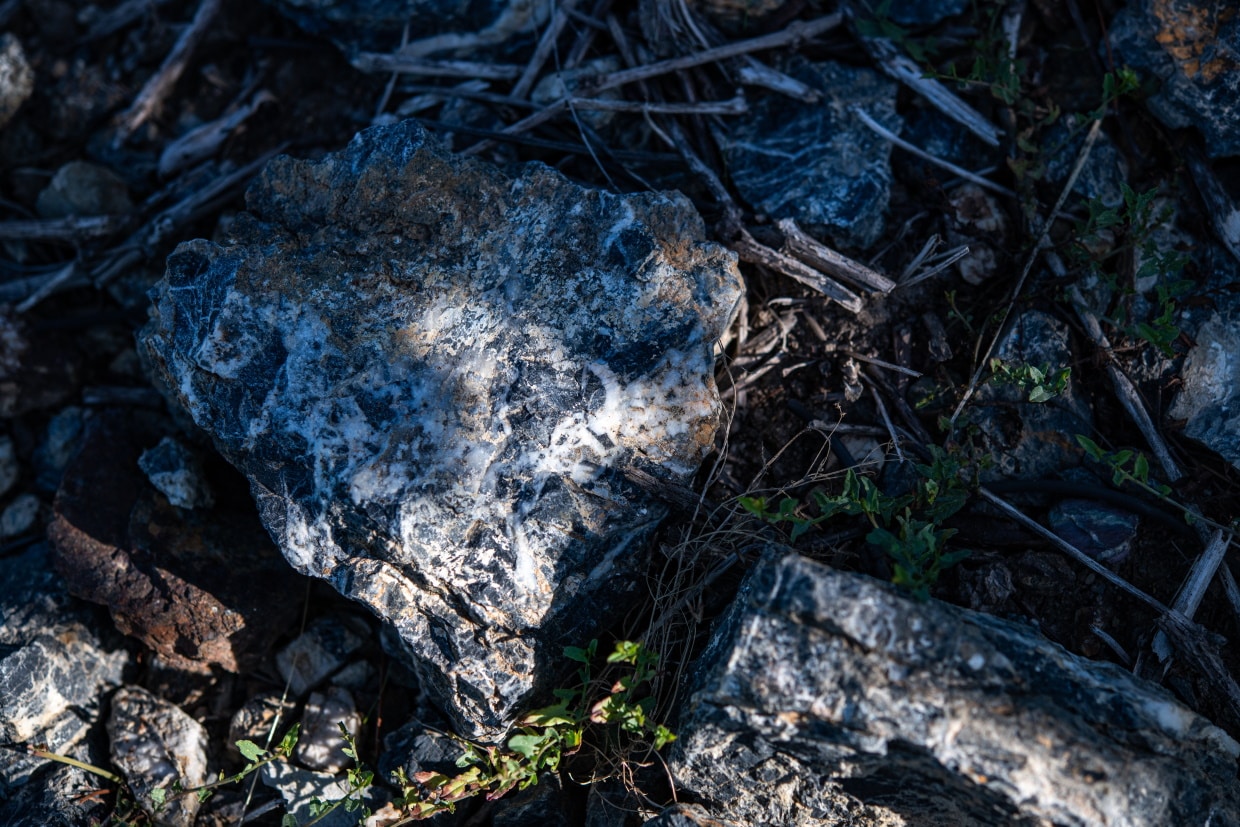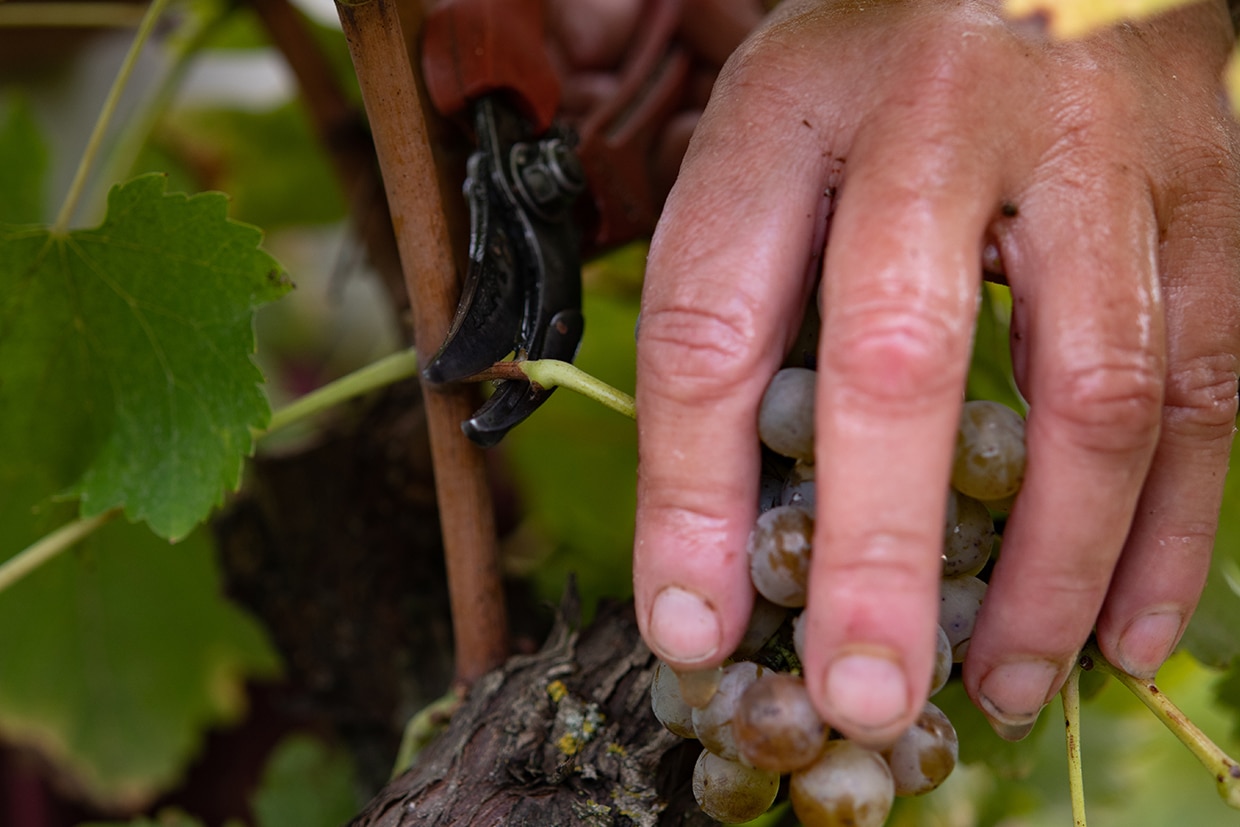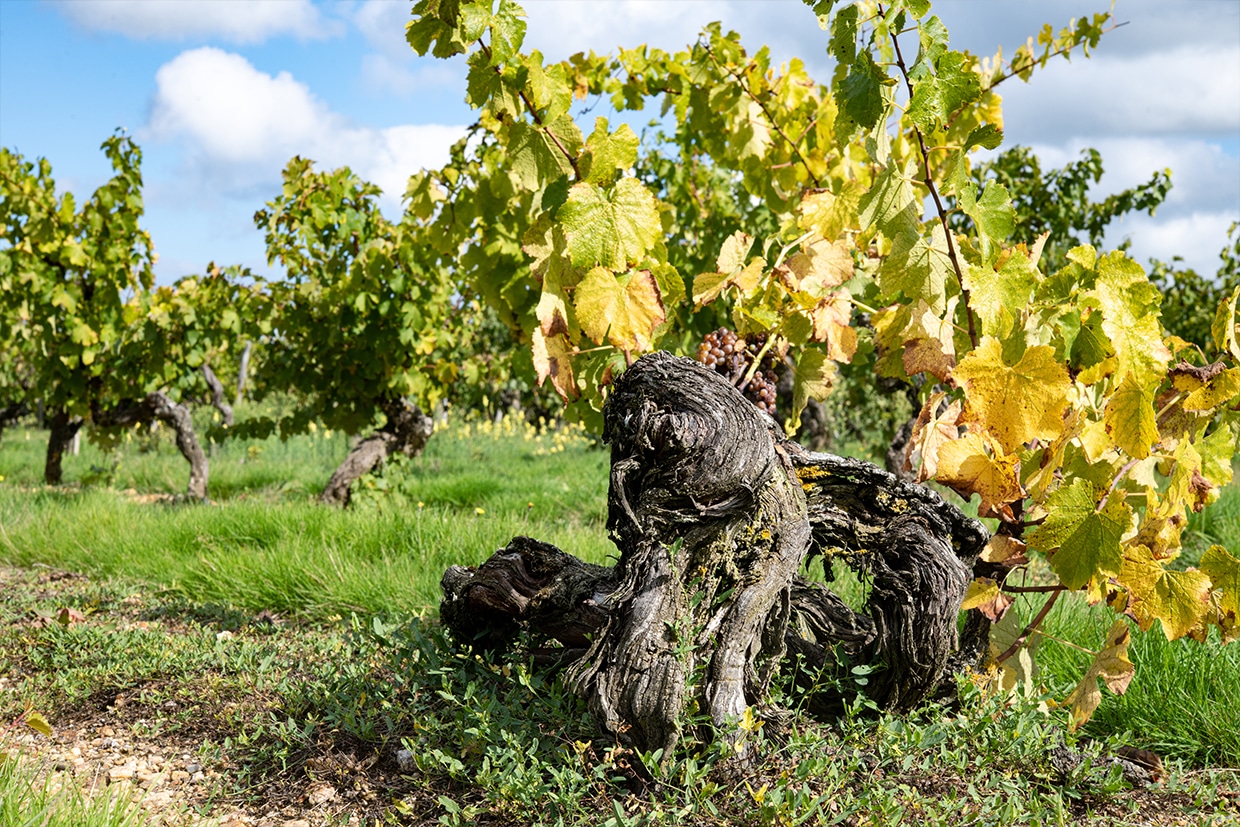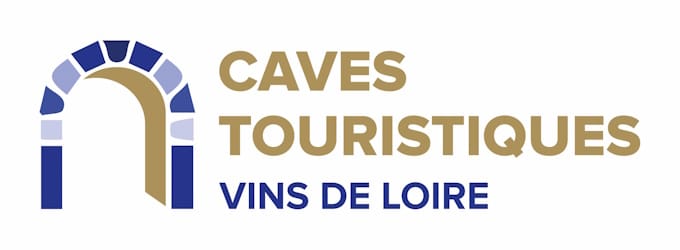L’Anjou noir,
a remarkable terroir
“Anjou noir” is a part of the Anjou terroirs which is located on the eastern edge of the Armorican Massif. With its crystalline and acidic origin, the oldest soils are essentially composed of schist, gneiss and granite. The land still bears traces of old mines and quarries once used for extracting slate, iron and granite.
“Anjou noir” also refers to the color palette of the land such as grey, anthracite, hints of blue or brown which evoke the schist terroir. At Domaine des Petits Quarts, we know every inch of our vineyard by heart.


Tending the vine
like a garden
We work with meticulous care, as if tending a garden. The terrain is challenging and we avoid disturbing the soil too deeply, so as not to expose the vine roots to extreme weather conditions.
Our vineyard lies mainly of a schist terroir and is crossed by a vein of phtanites (a blue colored rock containing quartz). Our vines grow on slopes, some reaching up to a 25% incline. Their exposure to sunlight and climate varies dramatically from one plot to another.
Our exceptional terroirs face many challenges : rain, frost, erosion and limited sunshine. Most of the time, they have low water reserves. But for us, that’s a blessing ! Because our vines thrives under water stress! It is even a key factor for the success of our different wines. And then there’s the mildness of the Anjou climate...
A gentle
oceanic climate
Our vineyard plots vary in orientation, ranging from southeast to southwest. Our "Malabé" plot is exposed to the rising sun, our "Beauregard" faces southeast and our "Melleresses" lies directly to the south.
We prefer southern exposures over northern ones because they promote grape ripening and the development of noble rot. The sun shines longer and more intensely, warming and drying the soil. This is an advantage for our grapes, giving them a warm southern character! These varying exposures shape the life of each vine. Some follow the soft rhythm of the morning sun, while others endure the intensity of full southern exposure and sometimes even scorching heat. These natural challenges leave no room for shortcuts in our vineyard management. They demand that we cultivate deeply rooted vines, capable of drawing vital minerals from the soil.


EXCLUSIVE
PROVENANCE
FROM THE VINEYARD
EXPRESS
DELIVERY
PERSONALISED
ADVICES
+33(0)2 41 54 03 00
RESPECT
OF PERSONAL DATAS

